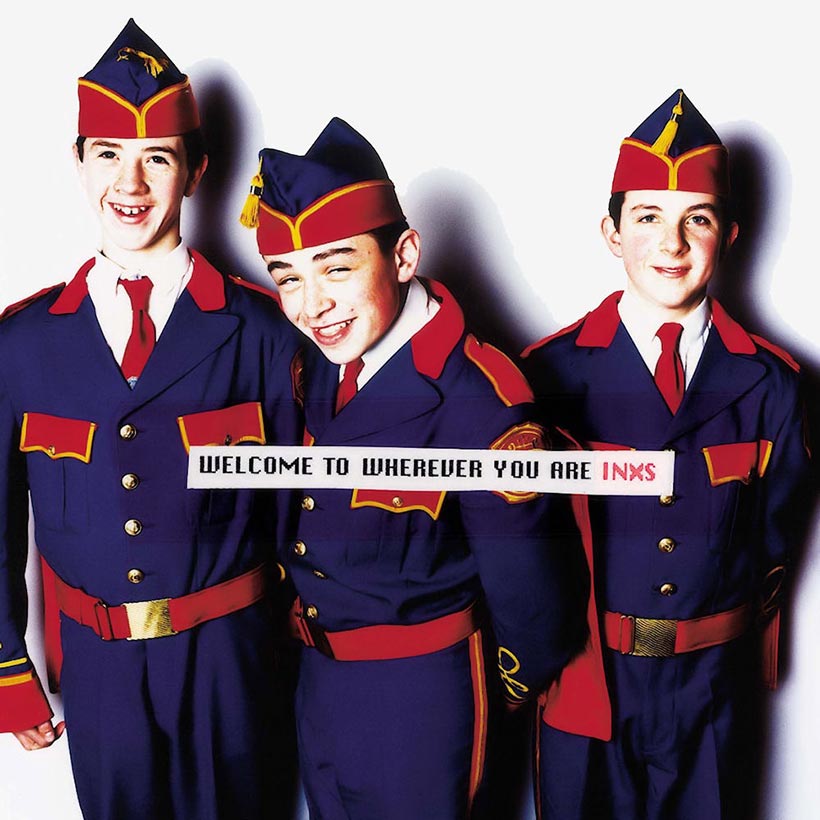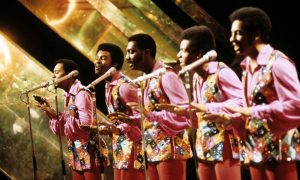During the late 80s, INXS transitioned into bona fide global superstars. They’d done much of the heavy lifting during the decade’s early years, nurturing an impeccable live reputation through relentless touring and preparing the ground for their landmark albums, Kick and X, to yield multi-platinum sales. Yet they needed to remain sharp, for when INXS recorded 1992’s Welcome To Wherever You Are, new musical styles, including grunge and alternative rock, were aggressively challenging the status quo.
To their credit, the band wholeheartedly embraced the change, assembling a new record that reflected these fast-moving times. To do this the band embarked upon rehearsals at Sydney’s famous Opera House, where they experimented with new sonic textures, turned up the guitars, and cut back on some of the more polished production techniques that had been a feature of the two previous albums.
The other significant change during this period took place behind the console. Producer Chris Thomas (Sex Pistols, Roxy Music, Pretenders) had overseen Listen Like Thieves, Kick and X, but for the Welcome To Wherever You Are sessions at Sydney’s Rhinoceros Studios, Mark Opitz manned the desk for the first time since 1983’s Shabooh Shoobah, with the band themselves also receiving a collective co-production credit. INXS put the finishing touches to Welcome To Wherever You Are in the early summer of 1992, with the album release following on August 3.
That they hadn’t simply made another X was immediately apparent from the new disc’s initial brace of tracks. Enigmatic opener “Questions” exuded a heady Eastern vibe embellished by tablas, Kirk Pengilly’s droning brass horn, and a heavily-distorted Michael Hutchence vocal, while on muscular garage-pop workouts “Heaven Sent” and “All Around” the band clearly relished the opportunity to whack up the amps and let rip.
Yet while Welcome To Wherever You Are demonstrated grunge’s impact on INXS, it also revealed that Hutchence and co had their own challenges to the grunge revolution. Indeed, the album also created space for further bold departures, including the lilting “Beautiful Girl” – the sweetest of pop confections enhanced by Pengilly’s “Walk On The Wild Side”-esque sax – and the opulent “Baby Don’t Cry,” a sweeping anthem vividly realized with the assistance of the 60-piece Australian Concert Orchestra, conducted by Colin Piper.
Elsewhere, there was still plenty of quintessential INXS to savor. “Wishing Well,” “Taste It” and the Brave New World-esque technological commentary “Communication” all rode the kind of sinewy grooves the band had long since hallmarked, while the irresistible “Not Enough Time” featured a super-smoochie Hutchence vocal and emitted a radio-friendly vibe which ensured the song became the album’s flagship hit in the US, where it rose to No.2 on Billboard’s Modern Rock chart.
The critics enthusiastically acknowledged INXS’ desire to stretch sonically, with Rolling Stone declaring the album to be “music that attracts” and UK broadsheet The Independent proclaiming Welcome To Wherever You Are to be the band’s “best record by some distance… bristling with pop hooks”.
Atypically, INXS opted not to play any gigs in support of the album until they completed its follow-up, Full Moon, Dirty Hearts. Regardless, Welcome To Wherever You Are went on to garner a string of accolades. It secured Top 5 placings in numerous European territories and, when it shot to No.1 in the UK, INXS deservedly became the first Australian band to top the British album chart since AC/DC with 1980’s iconic Back In Black.




